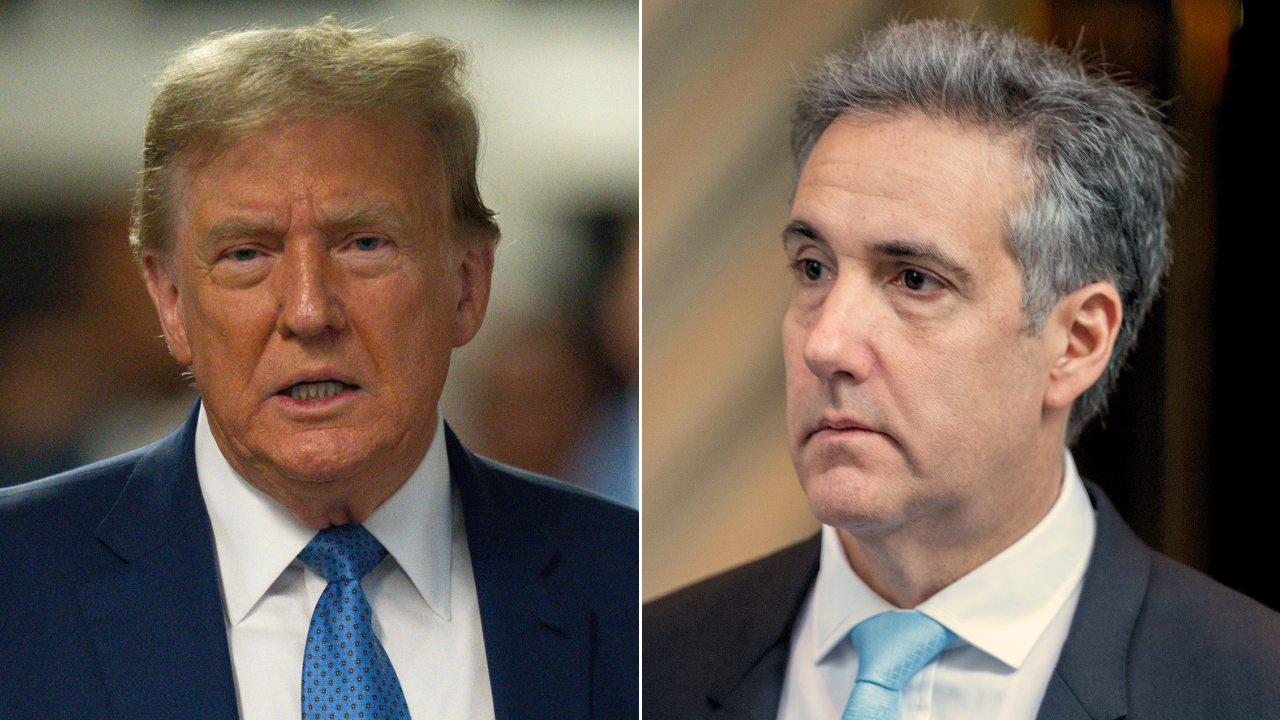Finance
G-7 finance chiefs to check bank risks, supply chains with partners

The finance chiefs of the Group of Seven nations on Friday will discuss ways to protect financial stability from bank runs caused by the widespread use of message apps and online banking and to build resilient supply chains amid China’s dominance over critical products.
On the second day of a meeting through Saturday, the G-7 finance ministers and central bank governors will also discuss climate change. Debt vulnerabilities among developing nations are also on the agenda, in a rare outreach session for the finance track with six nations such as Brazil, India and South Korea.
As chair of the G-7, Japan is aiming to set a clear schedule for the launch of a “mutually beneficial” partnership with low and mid-income nations to build robust supply chains for critical products for decarbonization.
The finance chiefs’ talks lay the groundwork for their leaders’ summit next week in Hiroshima where they are expected to stand firm against Russia’s war on Ukraine and China’s assertiveness.
“It’s become clear that financial worriers can spread in an instant via social networking sites, and online banking, which allows money withdrawals outside business hours, can cause bank runs,” Japanese Finance Minister Shunichi Suzuki said Thursday.
He stressed the need to share the lessons learned from recent bank failures in the United States.
The G-7 has stressed that the financial system is sound despite bank woes first triggered by the collapse of Silicon Valley Bank. It was followed by other lenders Signature Bank and First Republic Bank.
Adding to market anxiety is the risk of a U.S. default amid gridlock over the debt limit. U.S. Treasury Secretary Janet Yellen said a default will produce “an economic and financial catastrophe.”
Besides Japan and the United States, the G-7 includes Britain, Canada, France, Germany and Italy plus the European Union.
Japanese Finance Minister Shunichi Suzuki (R) and Bank of Japan Governor Kazuo Ueda attend the first day of three-day talks between Group of Seven member states’ finance ministers and central bank governors in Niigata, northwest of Tokyo, on May 11, 2023. (Pool photo) (Kyodo) ==Kyodo
Related coverage:
G-7 finance chiefs to discuss bank woes, Ukraine, emerging risks
Profile of leaders to participate in G-7 summit
Japan takes issue with Time’s headline for Kishida interview


Finance
What are the best ways to finance excellent hotel studies? – Part 2

While the hospitality industry is renowned for being a veritable social ladder, where someone without a degree can start out as a dishwasher before working their way up to become a hotel manager, education remains the quickest route to positions of great responsibility. Future talents are turning to the best hotel schools to train and join this rich industry. However, the cost of excellent studies can be daunting for many students. This is a financial barrier that schools, authorities and even the students themselves are trying to overcome through various financing solutions.
To (re)discover part 1 of this analysis, which looks at the cost of student life in 2024, click here. A wide range of funding options Grants, funding and support While such studies may seem out of reach for many students because of their cost, there are many ways of financing them. Whether it’s the…
Finance
Rana Abbasova, Adams aide whose home was raided, is cooperating with feds’ campaign finance probe

An aide to Mayor Adams whose home was raided amid an FBI probe into his 2021 campaign is cooperating with federal authorities, a source with knowledge of the matter said Monday.
The aide, Rana Abbasova, is one of several people whose residence was raided as the feds probe allegations that the Turkish government funneled illegal cash into Adams’ campaign through straw donors.
The mayor has not been accused of any wrongdoing and strongly denies any suggestion of impropriety in connection with the investigation.
It’s unclear what Abbasova may have discussed with the feds, though her cooperation pertains to the general allegation of illegal Turkish government-financed contributions to the mayor’s campaign, according to The New York Times, which first reported her cooperation. Her lawyer Rachel Maimin declined to comment.
Brendan McGuire, the mayor’s former chief counsel at City Hall who now represents him and his 2021 campaign in the FBI investigation, confirmed Abbasova’s cooperation, but said it’s “not a new or meaningful development.”
Abbasova, the director of protocol in Adams’ International Affairs Office and the mayor’s unofficial liaison to the local Turkish community, was put on unpaid leave days after her home was raided in November, according to two sources with knowledge of the matter. She remains on unpaid leave, and her position at City Hall has not been filled, they added.
The sources spoke on condition of anonymity due to the sensitive nature of the Adams campaign probe, which burst into the headlines when the home of the mayor’s chief campaign fundraiser, Brianna Suggs, was raided in November. Days later, Adams had his own electronic devices seized by the feds.
Abbasova received three tickets in New Jersey in January for offenses linked to driving a for-hire vehicle, the Daily News previously reported.
While she’s been on unpaid leave, another Adams aide targeted by the feds in a separate matter went on paid sick leave after her Bronx homes were raided in February. That aide, Winnie Greco, has since returned to work at City Hall, receiving a raise earlier this month.
McGuire noted the mayor’s administration reported to investigators late last year that Abbasova had engaged in “improper conduct.” Sources confirmed at the time that the conduct in question was Abbasova instructing other Adams staffers to delete text messages they’d exchanged with her.
“It is our understanding that Ms. Abbasova has been talking to investigators since her improper conduct was reported by the administration in November,” McGuire said in a Monday night statement.
Finance
Trends in residential solar finance, equipment and maintenance

Solar informational site SolarReviews released its annual survey, sharing results gathered from a group mostly represented by residential solar installers, as well as commercial installers, equipment providers, and utility-scale installers. SolarReviews operates a Solar Calculator that enables prospective customers to have a snapshot of the benefits of adding solar to their roof based on customized data for their area.
Finance
With higher financing costs industry-wide, 54% of U.S. installers said customers were less likely to take a solar loan over the past year, while cash deals are up. About 49% of sales reported were cash deals, while 41% were loans. HELOC, PACE loans, power purchase agreements, and leases combined for 10% of reported solar sales.
The top financing providers used were Credithuman (15%), Mosaic (14%), Sunlight Financial (9%),Dividend (8%), and Clean Energy Credit Union (8%).
Typical loans for loaned systems varied widely depending on whether dealer fees were assigned. Average terms are seen below.
Heightened cost of finance has pressed the residential solar industry. About half (49%) of installers said demand went down in 2023 versus 2022.
In California, where rates paid for exporting solar production to the grid were slashed by about 80%, about 69% of installers reported lower sales in California in 2023 versus 2022. However, 68% of installers reported including battery energy storage with their solar installation, about double the national average. Installers report a median payback period of eight years for solar systems with a battery, while standalone solar systems have a longer median payback period of about 10 years.
California was not the only state to cut rates for solar exports, a process known as net metering. Georgia, Arizona, Kansas, Arkansas, and Wisconsin all noted an increase in installed systems not tied to a net metering agreement.
Top products
As for the top equipment brands in residential solar, SolarReviews surveyed installers based on five criteria of performance and quality, brand name reputation, product warranty, pricing, and product availability from distributors. Based on the five criteria, SolarReviews listed Qcells as the top performing panel brand.
Installers said the top five most-used panels were Qcells (53%), REC (41%), Canadian Solar (35%), Mission Solar (29%), and JinkoSolar (20%). About 19% of solar installers offer one panel brand, while the majority provide alternative options to meet the needs of their customers.
For inverters, the top five most-used were Enphase (62%), SolarEdge (43%), SMA (23%), Sol-Ark (21%), and Tesla (21%). Tesla made a notable leap up into the top five, gaining a larger market share than Fronius and Generac.
Enphase was also listed as the most commonly used battery energy storage provider, offered by 46% of installers. This was followed by Tesla (42%), SolarEdge (35%), FranklinWH (29%), and Fortress Power (18%). A sizeable market share was also held by SunPower, Generac, LG Energy Solution, and HomeGrid.

Maintenance
Given that solar is often a 25-year investment, post-installation services are a critical feature in a solar agreement. About 96% of installers have access to system monitoring, while 63% said they proactively check their customers’ installations at least once per quarter to ensure they are working.
The most common reasons for service, in order, were inverter hardware failures and replacement, inverter software and setup issues, battery software updates, communications and monitoring fixes, roof leaks, battery hardware failure or replacement, wiring issues, and broken or underperforming panels.
“Fortunately, when issues do occur, they are often covered by some type of warranty, leaving only 15% of cases where the customer is responsible for repair costs,” said SolarReviews.

Outlook
The residential solar industry looks to recover from a rocky 2023, where growth was slowed by high finance costs and unfavorable policy changes like the reduction of net metering rates.
“Some solar businesses are still reeling from the events of 2023. 22% of solar businesses say they have concerns that make them unsure whether they can stay in business in the coming six months,” said SolarReviews.
Despite this uncertainty, residential solar installers appear to have a good outlook for 2024. About 54% of surveyed installers said they expect to sell more solar in 2024, and an additional 23% said they think they will be able to maintain the same level of business next year.
Notably, surveyed installers listed pv magazine as the top trusted media platform for solar news and analysis, with 52% responding we are the preferred source. The marks the second year in a row as the most-trusted media source. We thank you for your continued readership.
This content is protected by copyright and may not be reused. If you want to cooperate with us and would like to reuse some of our content, please contact: editors@pv-magazine.com.
-

 News1 week ago
News1 week agoSkeletal remains found almost 40 years ago identified as woman who disappeared in 1968
-

 Movie Reviews1 week ago
Movie Reviews1 week ago“Kingdom of the Planet of the Apes”: Disney's New Kingdom is Far From Magical (Movie Review)
-

 World1 week ago
World1 week agoIndia Lok Sabha election 2024 Phase 4: Who votes and what’s at stake?
-

 World1 week ago
World1 week agoUkraine’s military chief admits ‘difficult situation’ in Kharkiv region
-

 World1 week ago
World1 week agoCatalans vote in crucial regional election for the separatist movement
-

 Movie Reviews1 week ago
Movie Reviews1 week agoAavesham Movie Review
-

 Politics1 week ago
Politics1 week agoNorth Dakota gov, former presidential candidate Doug Burgum front and center at Trump New Jersey rally
-

 News1 week ago
News1 week agoTrump, Reciting Songs And Praising Cannibals, Draws Yawns And Raises Eyebrows


















